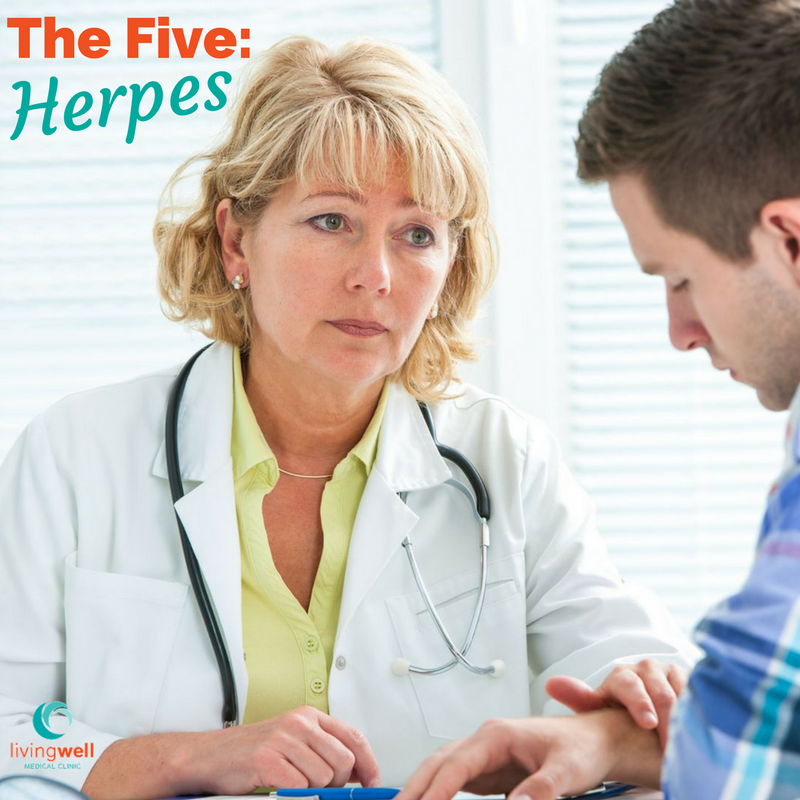
“The Five” is a series of blog posts that will look at some of the most common STIs and give you answers to five of the most important questions you should be asking.
Sexually Transmitted Infections (STIs) are often not talked about because it can be an awkward topic, and when they are discussed, they are frequently misunderstood. For young adults, they are a big problem. The Center for Disease Control and Prevention (CDC) estimates there was an average of 1,188,085 new cases each year in the past five years in people between the ages of 15-29.
Asking the right questions and getting accurate answers is important. Because the more you know, the better you can protect yourself.
The Five – Chlamydia
#1 – What is Chlamydia and how do you get it?
Chlamydia is the most commonly reported STI in the United States and infects both men and women. It is passed on through vaginal, oral or anal sex with a partner who has it already. If your partner is male, you can become infected even if he doesn’t ejaculate. And it is important to know that if you’ve had chlamydia in the past and been treated, you can get infected again.
#2 – What are the symptoms of Chlamydia?
For many women and men there aren’t any symptoms that indicate you have an infection. Because of this, not only is it hard to know if you have it, but it makes it virtually impossible to know if your partner might be infected.
When symptoms are present for women, they may include a burning sensation when urinating, an abnormal vaginal discharge or bleeding, back or abdominal pain, or pain during sex.
Most men with Chlamydia have no symptoms. When men have symptoms, they may include a discharge from the penis, a burning feeling when urinating, burning or itching around the penis opening, and pain and swelling in one or both testicles (although this is less common).
And occasionally men and women can experience pain, swelling, discharge or bleeding from the rectum if there is a rectal infection.
#3 – How can I find out if I have Chlamydia?
The only way to be sure if you have Chlamydia is to get tested. LivingWell Medical Clinic offers appointments for testing at no cost to our clients, so there’s no reason not to find out.
#4 – Is there a cure for Chlamydia?
Yes. If you test positive for Chlamydia, there is medication that can cure the infection. In order for treatment to be successful there are a few things that must happen. You will need to take all of the medication prescribed. You will also need to refrain from sexual contact during the treatment and not have sex for 7 days after the treatment is complete. You will also want your partner to get tested, and if needed, receive treatment so you don’t become infected again. Repeat infection is not unusual, so we recommend you get tested again after 3 months, even if your partner was also treated.
It is important to note that medication can stop the infection, but it can’t undo any permanent damage caused by the disease. And keep in mind that just because the treatment was successful that doesn’t mean that you won’t become re-infected and run the risk of serious and permanent damage. You should avoid risky behavior that can lead to a repeat infection.
#5 – What happens if I don’t get tested and treated if I have Chlamydia?
If you have Chlamydia and don’t get proper treatment you are putting you and your future partner’s health at risk. Left untreated Chlamydia can cause some serious health problems, especially in women. Left untreated, Chlamydia can spread to your uterus and fallopian tubes, causing pelvic inflammatory disease (PID). A woman who contracts PID is at risk for damage to her reproductive system, which can make it difficult or impossible to become pregnant later in life. PID may cause a dangerous and potentially fatal ectopic pregnancy. Also, if you are pregnant, Chlamydia may make it more likely for you to deliver your baby too early, and it can also be passed on to your baby during birth. This may result in eye infections or pneumonia in a newborn.
As we mentioned earlier, young people are a high-risk group when it comes to STIs like Chlamydia. Latex condoms and dental dams used the correct way every time you have sex will lower your risk. However, the only sure-fire way to avoid getting any STI is to not have sexual contact (vaginal, oral or anal), until you are in a mutually monogamous relationship with an uninfected partner.
Bottom line, we want you to have all the information you need to make healthy decisions when it comes to sex. You can get more info about Chlamydia from the CDC. If you are sexually active and think you might need an appointment for a test, we hope to see you. All of our services are confidential and provided at no cost to you. If you have questions about Chlamydia, or our services for other STIs, feel free to leave a message in the comments below.

Neva Monigatti-Lake
Medical Director
The content on this page has been reviewed and approved by our Medical Director.


